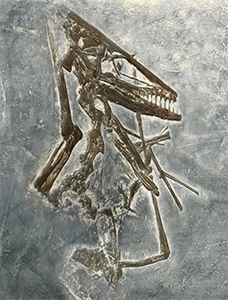Courses
Stories of Lost Worlds

This course will focus on some of the multidimensional stories that can be coaxed out of objects in Wesleyan’s Joe Webb Peoples Museum of Natural History, including fossils—real or plaster copies—many restored by Wesleyan students. We will talk about long extinct animals (e.g., giant armadillos and huge sea-going predator lizards), and the changing climates, landscapes, and ecosystems involved in the evolution of species and extinction of their predecessors. Our fossils also offer the key to intriguing stories about the museum itself and the early history of education at Wesleyan, inseparable from the history of U.S. and European societies in the 19th and early 20th century. That was a time when what we now call “science” was emerging, a time of rapidly changing ideas about and insights into creation, extinction, and evolution. Founded in 1831, Wesleyan was one of the first American colleges dedicated to scientific study. During ensuing decades, it acquired hundreds of thousands of archaeological, ethnographic, geological, and paleontological specimens. This course will consider the tumultuous history of the collections since the original museum closed in 1957. Now housed in the Exley Science Center —where the course will be held—the collection has been in part re-organized, including new displays.